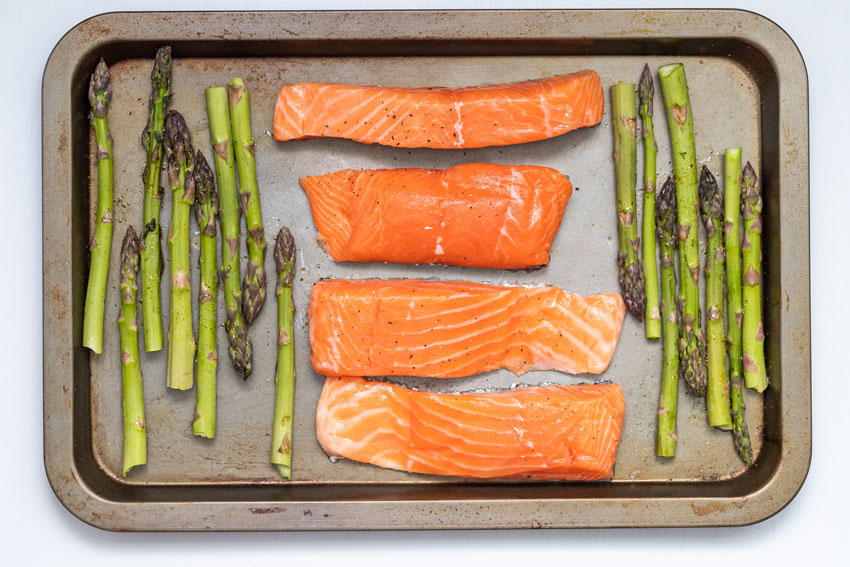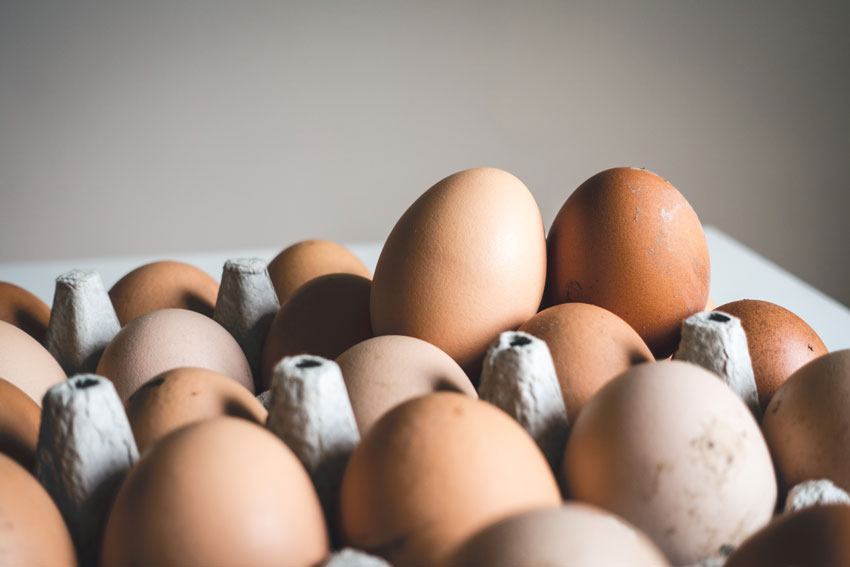Foods that Naturally Increase Serotonin Production in the Brain
A healthy and consistent diet does wonders for our bodies and our brains that outweigh the benefits any vitamin, supplement, or workout exercise could ever offer. The nutritional value in the well-balanced diet helps to regulate important bodily functions such as feeding the healthy bacteria in our intestinal tract, maintaining a healthy blood pressure, and reducing free radicals and other potentially harmful items from our bloodstream. Complementary to the benefits a healthy diet offers to our bodies are those that regulate mood, anxiety, and blood circulation to the brain. Without proper and balanced nutrition, the cells in our brain that are responsible for our emotions become deficient in certain necessary chemicals to function properly. But how does this all work? Which foods provide the most value to brain cells?
Serotonin and Tryptophan: How do they Work?
Most people who have a basic understanding of the active neurotransmitters in the brain are already aware of serotonin. As a brief overview, this chemical acts like a messenger within the brain, helping to activate certain pathways within the brain that are commonly associated with mood, sleep, and behavior. Generally speaking, serotonin levels are linked to feelings of general well-being. When serotonin levels are depressed or depleted within the brain, we are prone to feelings of sadness, depression, and even anxiety. In order to combat conditions such as major depressive disorder (MDD), common pharmaceuticals such as selective serotonin reuptake inhibitors (SSRIs) such as Prozac intentionally block the re-absorption of serotonin in the brain, allowing more to remain circulation.
But how is serotonin linked to tryptophan? Well, tryptophan is an amino acid that is found in many dietary proteins, so it is commonly found in some of the foods we eat. Research shows that when this amino acid is consumed, it synthesizes serotonin in the brain. It does so by passing through the blood-brain barrier in order to gain access to the central nervous system (CNS).
Foods High in Tryptophan
Many cultures and cuisines around the world involve foods that naturally contain high levels of tryptophan. Unsurprisingly, some of these communities that incorporate more tryptophan into their diets experience lower occurrences of depression and mood disorders. However, many people find it difficult to maintain a diet that is best positioned to have positive effects on mood. In an effort to help you better support your mood, here are the top foods that naturally increase serotonin production in the brain.
*Note: recommended daily intake of tryptophan per day for humans is 1.8 milligrams for every pound someone weighs.

Chicken & Turkey
For many people who are not vegetarians, chicken and turkey are among the most commonly consumed poultry that remains prevalent in sandwiches or standalone dishes. Although these poultry types are easily recognizable as being high in lean protein (with about 27 grams for every 3 ounces of meat), they are also high in tryptophan levels too. In fact, there is about 343 milligrams per 3 ounces of chicken or turkey, which equates to 123% of the recommended daily intake of tryptophan for humans (1).

Lamb
Although dark meats such as lamb and beef are not recommended for daily intake to avoid overloading on unhealthy cholesterol levels, lamb does contain a sizable amount of tryptophan that could show potential for helping people develop greater amount of serotonin. For every 3 ounces of lamb cut there is an estimated 228 milligrams of tryptophan, which equates to 82% of the recommended daily intake (2).

Pumpkin Seeds
Have you ever enjoyed roasting pumpkin seeds after carving them out of your annual jack-o’-lantern? Or do you regularly reach for the pumpkin seeds as a snack at your local whole foods or farmer’s market? If you regularly snack on pumpkin seeds you already are taking in a decent amount of tryptophan – about 164 milligrams, or 58% of your recommended daily intake per 3 ounces to be exact (3).

Cheese
Contrary to popular belief, not all cheese is unhealthy for you so long as the right cheeses are enjoyed using proper moderation. However, not all cheese are created equal when it comes to tryptophan levels, so before you reach for that fatty slice of brie, consider this – reduced fat mozzarella clocks in at an impressive 57% of recommended daily intake for tryptophan. This means for every 3 ounces of reduced fat mozzarella, there is about 160 milligrams of tryptophan (4).

Roasted Soybeans
For sushi-lovers who enjoy ordering lightly-salted edamame along with their favorite rolls, they are likely already reaping the benefits of the tryptophan levels present in soybeans. In addition to its impressive protein levels (about 31 grams for every 172 grams), it also contains 416 milligrams of tryptophan. This comes to about 149% of the recommended daily intake (5).

Sockeye Salmon
Wild-caught salmon remains one of the healthiest meats out there, not to mention one of the tastiest as well. It is most well-known for containing an impressive amount of omega-3 fatty acids (1,727 milligrams for every 170 grams), which is an essential amino acid that proves to have many benefits ranging from improving cognition to aiding in reducing symptoms of depression. With regard to tryptophan contents, it also contains very high levels, offering approximately 570 milligrams for every 170 grams. This comes to about 203% of the daily nutritional value recommended for humans (6). While salmon is still probably the healthiest fish out there, other fish such as halibut, trout, snapper, and mackerel also contain high amounts of tryptophan.

Eggs
Many say that a well-rounded breakfast is the best way to ensure a successful day, and one of the best ways to make a healthy breakfast (for non-vegans) is with organic eggs. Along with providing the body healthy cholesterol, protein, and other nutrients, eggs are also high in tryptophan. In fact, eggs contain about 83 milligrams of tryptophan for every 50 grams of weight, or about 30% of the daily nutritional value (7).

Black Beans
Black beans are among the healthiest of beans for humans due to the variety of nutrients and benefits they offer. For one, they contain about 60% of the recommended daily intake of fiber per serving. They also contain approximately 30% of the recommended daily value of protein for humans. With regard to tryptophan, they offer 181 milligrams for every 172 grams of black beans, which comes to about 65% of the daily nutritional value (8).

Uncooked Oats
Although raw oats aren’t always the most flavorful additive to a meal, they go perfectly in yogurt parfaits or mixed into a hot cereal. Oats are considered to be a very healthy snack for humans, offering about 66% of the daily nutritional value of fiber per serving. In addition to fiber, oats contain an impressive 365 milligrams of tryptophan for every 156 grams, or 130% of the daily nutritional value (9).

Spirulina
Spirulina is a type of blue-green algae that provides some very significant health benefits to both animals and humans. It is known for being ecologically sound, nutrient-rich, and requires less resources to produce compared to other foods that are equally as rich in vitamins and nutrients. As for tryptophan levels, spirulina contains 331 milligrams for every 100 grams, or about 34% of the daily nutritional value (10).
Serotonin and Tryptophan in Your Diet
While it might be commonsense to think that by simply consuming foods that are high in tryptophan you can boost serotonin levels in the brain, this is not always the case. In order for tryptophan to be absorbed into the bloodstream, insulin levels must be high. Since carb-free foods like salmon don’t spike insulin levels very high, the body might not absorb as much tryptophan as it could from such a nutrient-rich food.
However, some researchers believe that by eating high-tryptophan foods with carbohydrates, you can naturally spike your insulin levels in order to allow for the tryptophan to be better absorbed. So, if you are planning on having salmon for lunch, try placing it on a delicious piece of whole-wheat toast.
For other ways to boost serotonin levels naturally, click here.






